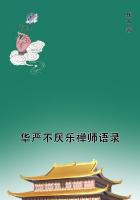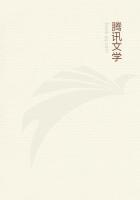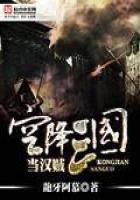Hence, if they be readable at all, and hang together by their own ends, the peculiar convincing force of these brief representations. They take so little a while to read, and yet in that little while the subject is so repeatedly introduced in the same light and with the same expression, that, by sheer force of repetition, that view is imposed upon the reader. The two English masters of the style, Macaulay and Carlyle, largely exemplify its dangers. Carlyle, indeed, had so much more depth and knowledge of the heart, his portraits of mankind are felt and rendered with so much more poetic comprehension, and he, like his favourite Ram Dass, had a fire in his belly so much more hotly burning than the patent reading lamp by which Macaulay studied, that it seems at first sight hardly fair to bracket them together. But the "point of view" was imposed by Carlyle on the men he judged of in his writings with an austerity not only cruel but almost stupid. They are too often broken outright on the Procrustean bed; they are probably always disfigured. The rhetorical artifice of Macaulay is easily spied; it will take longer to appreciate the moral bias of Carlyle. So with all writers who insist on forcing some significance from all that comes before them; and the writer of short studies is bound, by the necessity of the case, to write entirely in that spirit. What he cannot vivify he should omit.
Had it been possible to rewrite some of these papers, I hope I should have had the courage to attempt it. But it is not possible. Short studies are, or should be, things woven like a carpet, from which it is impossible to detach a strand.
What is perverted has its place there for ever, as a part of the technical means by which what is right has been presented. It is only possible to write another study, and then, with a new "point of view," would follow new perversions and perhaps a fresh caricature. Hence, it will be, at least, honest to offer a few grains of salt to be taken with the text; and as some words of apology, addition, correction, or amplification fall to be said on almost every study in the volume, it will be most simple to run them over in their order. But this must not be taken as a propitiatory offering to the gods of shipwreck; I trust my cargo unreservedly to the chances of the sea; and do not, by criticising myself, seek to disarm the wrath of other and less partial critics.
HUGO'S ROMANCES. - This is an instance of the "point of view." The five romances studied with a different purpose might have given different results, even with a critic so warmly interested in their favour. The great contemporary master of wordmanship, and indeed of all literary arts and technicalities, had not unnaturally dazzled a beginner. But it is best to dwell on merits, for it is these that are most often overlooked.
BURNS. - I have left the introductory sentences on Principal Shairp, partly to explain my own paper, which was merely supplemental to his amiable but imperfect book, partly because that book appears to me truly misleading both as to the character and the genius of Burns. This seems ungracious, but Mr. Shairp has himself to blame; so good a Wordsworthian was out of character upon that stage.
This half apology apart, nothing more falls to be said except upon a remark called forth by my study in the columns of a literary Review. The exact terms in which that sheet disposed of Burns I cannot now recall; but they were to this effect - that Burns was a bad man, the impure vehicle of fine verses; and that this was the view to which all criticism tended. Now I knew, for my own part, that it was with the profoundest pity, but with a growing esteem, that I studied the man's desperate efforts to do right; and the more I reflected, the stranger it appeared to me that any thinking being should feel otherwise. The complete letters shed, indeed, a light on the depths to which Burns had sunk in his character of Don Juan, but they enhance in the same proportion the hopeless nobility of his marrying Jean. That I ought to have stated this more noisily I now see; but that any one should fail to see it for himself, is to me a thing both incomprehensible and worthy of open scorn. If Burns, on the facts dealt with in this study, is to be called a bad man, I question very much whether either I or the writer in the Review have ever encountered what it would be fair to call a good one. All have some fault. The fault of each grinds down the hearts of those about him, and - let us not blink the truth - hurries both him and them into the grave.
And when we find a man persevering indeed, in his fault, as all of us do, and openly overtaken, as not all of us are, by its consequences, to gloss the matter over, with too polite biographers, is to do the work of the wrecker disfiguring beacons on a perilous seaboard; but to call him bad, with a self-righteous chuckle, is to be talking in one's sleep with Heedless and Too-bold in the arbour.
Yet it is undeniable that much anger and distress is raised in many quarters by the least attempt to state plainly, what every one well knows, of Burns's profligacy, and of the fatal consequences of his marriage. And for this there are perhaps two subsidiary reasons. For, first, there is, in our drunken land, a certain privilege extended to drunkenness. In Scotland, in particular, it is almost respectable, above all when compared with any "irregularity between the sexes." The selfishness of the one, so much more gross in essence, is so much less immediately conspicuous in its results that our demiurgeous Mrs. Grundy smiles apologetically on its victims.
It is often said - I have heard it with these ears - that drunkenness "may lead to vice." Now I did not think it at all proved that Burns was what is called a drunkard; and I was obliged to dwell very plainly on the irregularity and the too frequent vanity and meanness of his relations to women.
Hence, in the eyes of many, my study was a step towards the demonstration of Burns's radical badness.















